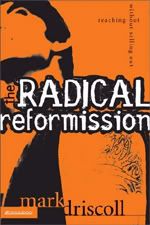from Spurgeons Lectures to My Students, A Blind Eye and a Deaf Ear:
"To go about the congregation ferreting out disaffection, like a gamekeeper after rabbits, is a mean employment and is generally rewarded most sorrowfully. When nothing is to be discovered which will help us to love others we had better cease from the inquiry, for we may drag to light that which may be the commencement of years of contention. I am not, of course, referring to cases requiring discipline, which must be thoroughly investigated and boldly dealt with, but I have upon my mind mere personal matters where the main sufferer is yourself; here it is always best not to know, nor to wish to know, what is being said about you, either by friends or foes. Those who praise us are probably as much mistaken as those who abuse us, and the one may be regarded as a set off to the other, if indeed it be worth while taking any account at all of man's judgment. If we have the approbation of our God, certified by a placid conscience, we can afford to be indifferent to the opinions of our fellow-men, whether they commend or condemn. If we cannot reach this point we are babes and not men.
Some are childishly anxious to know their friend's opinion of them, and if it contain the smallest element of dissent or censure, they regard him as an enemy forthwith. Surely we are not popes, and do not wish our hearers to regard us as infallible ! We have known men to become quite enraged at a perfectly fair and reasonable remark, and regard an honest friend as an opponent who delighted to find fault; this misrepresentation on the one side has soon produced heat on the other, and strife has ensued. How much better is gentle forbearance ! You must be able to bear criticism, or you are not fit to be at the head of a congregation; and you must let the critic go without reckoning him among your deadly foes, or you will prove yourself a mere weakling. It is wisest always to show double kindness where you have been severely handled by one who thought it his duty to do so, for he is probably an honest man and worth winning. He who in your early days hardly thinks you fit for the pastorate may yet become your firmest defender if he sees that you grow in grace, advance in qualification for the work; do not, therefore, regard him as a foe for truthfully expressing doubts; does not your own heart confess that his fears were not altogether groundless ? Turn your deaf ear to what you judge to be his harsh criticism, and endeavor to be better."
Wednesday, May 19, 2010
A Blind Eye and a Deaf Ear
Posted by revolution at 4:30 PM 0 comments
Tuesday, May 4, 2010
The Standard of Christian Parenting
That last year in Michigan, I mostly went to church by myself, and also went to the Navigators meetings. When we moved to South Florida, shortly before we were married, my wife, Laura, through her own journey of Faith Discovery also became a believer. At first, we went to Calvary Chapel Fort Lauderdale until we were led to our current church. (And anyone that knows us knows about the failed attempt at a church plant.)
Over the past decade, we've grown together in our Faith and Understanding of Jesus and His Mission. Through the good times and the bad. Interestingly, we seem to do the most growing during the bad times, when circumstances try to get the better of us.
When we turned 30, our biological clocks started ticking and we took seriously the idea of starting a family, though naive as to all that that would entail. Almost 4 years later, we were blessed with a little boy. This past year has been the hardest (economically) and also the greatest - emotionally, relationally, and spiritually - of our entire lives. This coming month, we are expecting a little girl, which I can imagine will only increase our joy exponentially.
We've both discussed the idea that, with only Grant by our side, at times, he seemed like a little side-kick. He was fun to have around, but not too much trouble. But with a little girl on the way, we are feeling more like a family. And we are seriously starting to lay down a plan on how we are going to raise them spiritually and practically.
For Christmas, my wife bought me a book called Revolutionary Parenting by George Barna - I wrote about it a few months ago. Obviously, I could kill myself reading a plethora of books about parenting, but I don't intend to.
Over the past decade, we've seen some great examples of parenting amongst some of the Christian friends that we've made. We cherry-picked some of their elements in order to form our own plan for raising our kids.
We've seen, first-hand, families that pray together every day, more than once a day even. We've seen families that engage their kids in discussions spanning Biblical and spiritual matters, as well as anything else that may be pertinent.
We knew one family, in particular, with six kids. The mother home schooled all six kids. At times, I would hear people at church criticize them for their lack of commitment to church or church activities. They were involved in church, but I think that people saw their potential for impact and were disappointed that they weren't more involved.
But now, with our own family forming, I think I can see more clearly the priorities of the "home-school" brood. With six kids and two adults, they were practically their own "small group". Let's face it, with that many kids, every day at home is basically a "cell church". Which makes me wonder. How many kids do you need to have, to take on that sort of function?
As we've discussed our plan for raising our children, we've both agreed that we are going to raise the standards by which we both were raised by our own parents. Having read Barna's recommendations for standards, I can't say that I would commit to all of the standards that he prescribes in his book. Not because I disagree with them on principle, but because I don't think that some of them are a realistic fit for our personalities and our family.
Posted by revolution at 3:09 PM 0 comments
Labels: life observation, parenting
Sunday, May 2, 2010
The Standard for Christian Parenthood: a brief history.
Posted by revolution at 2:33 PM 0 comments
Friday, April 30, 2010
Who or What sets the standard for Christian Parenthood?
Posted by revolution at 2:14 PM 0 comments
Labels: life observation
Friday, April 2, 2010
Friday, March 19, 2010
The Omnivore's Dilemma by Michael Pollan
Wednesday, March 17, 2010
Food Inc.
During college, my fiance (now my wife) announced to me that she was a soon-to-be vegetarian. This came as quite a shock to me as she had never mentioned anything of the sort up to this point. I was a bit stunned and wasn't sure what to think. I was a little bit angry with her for coming to this decision without mentioning it to me at all.
In my mind, if she was going to be a vegetarian, then I was going to be one as well. There was no doubt about it. We did everything together. I wasn't going to let her go it alone, even if I had no idea how exactly to extract meat from our diet.
There had been some clues leading up to the announcement. She had always been an animal lover. She had been a financial contributor to PETA, though acknowledging that their philosophy went "too far." She couldn't really eat red meat anyways, because of a disease that makes it hard for her digestive system to process it.
So basically, she was going to cut out chicken. (More importantly - chicken fingers - as almost every young girl between the ages of 12 and 22 lives off of chicken fingers. Just ask any waiter in a restaurant).
The eating of fish was and never really has been an issue for either of us.
There was an article in Newsweek by Robert F. Kennedy Jr. in April of 1999 that really hit home with both of us. We still have the article:
I Don't Like Green Eggs And Ham!
Industrial Farming Isn't Just Bad For Hogs, Chickens And The Environment. It Produces Tasteless Food.
Long story, short - we figured out how to remove meat from our diet, added some new "vegetarian" items into it, and life went on enjoyably.
Our vegetarianism lasted a few years. What killed it was our love for occasionally eating out at restaurants - it was just too hard to be a vegetarian at most restaurants. When we finally did introduce meat back into the diet, we took it slowly and carefully.
We definitely buy into the theory that over-consumption has prompted over-production in the food industry. We still eat very little red meat. We might eat out once a week and its almost never for fast food - fast food is practically a bad word in our house. We love to cook at home. Many of our "vegetarian" recipes from the college days have survived to this day!
We wouldn't think of putting meat into chili or spaghetti or shepard's pie. We also still regularly visit the "vegetarian" alternative section of the supermarket - boca patties, veggie burgers, etc. We eat eggs again, but we go out of our way to buy the packages that make statements such as "free range", "hormone free", "vegetarian fed", etc.
That is our very brief history of poorly attempted sustainable living.
I really didn't think I'd learn anything from watching Food Inc., as we've been well versed in much of the food industry's antics.
I was wrong.
I learned quite a bit more from Food Inc. Things I wish that I could unlearn.
I don't want to give an exhaustive explanation of the movie because I think that it is 90 minutes well spent by anyone. Just as Supersize Me was a few years back. (You can watch the film for free on Hulu - the guy eats McDonald's every day, every meal for 30 days and it almost kills him. McDonald's got rid of their Supersize menu after that.)
Food Inc. really just kicked me further into the rabbit hole of just how corrupt our food system has become. How I can't really trust any of the labels on my food - because they're just another marketing scam to take advantage of my sensibilities.
That said, I'm on to read The Omnivore's Dilemma by Michael Pollan. He was one of the main contributors to the the film. (FYI, the film also referenced another pertinent predecessor, Fast Food Nation by Eric Schlosser, which I read a while back as well. It didn't hit home so much because we don't really eat fast food to begin with.)
Posted by revolution at 10:29 PM 0 comments
Thursday, March 11, 2010
Nostalgia
My wife recently said that I was the most nostalgic person that she knows. I think she meant it as an insult, but I'll take it as a compliment.
I would agree that I've been more nostalgic as of late. I think it has to do with a few different factors. For one, I'm quickly closing in on a mid-point in my life - of course, that's optimistically assuming that I'll live to see 70 or 80 and not die of a heart attack at 52 like my father. Otherwise, I've already passed the mid-point.
Second, I've recently become a father of a little boy, and soon to be, a little girl as well. This definitely causes me to give a great deal of thought to how I was raised.
Third, my father's passing two years ago has had me in a retrospective mood ever since. Thinking about what he was able to accomplish and what he had wished to accomplish.
Fourth, I've reached an impasse, career-wise, and I've made the decision to pursue a more fulfilling career path. Let's face it, I haven't really had a "career" at all these past ten years, just a series of paychecks.
The instance that spurred this comment from my wife, was when she saw multiple episodes of the Roseanne show saved on the DVR. She attributed this to nostalgia. Actually, I'd say that my being drawn to this show is more than nostalgia. If it were simply nostalgia, I'd also be recording the Cosby Show and Home Improvement.
No. The reason that I'm drawn to Roseanne is that same reason that it really struck a cord with me during my childhood - I can relate to it.
My family didn't fight like the Conners. My family was a little more on the "church-going" side of the middle-lower class rung of the ladder. But I definitely grew up around families like the Conners. And the Mid-western middle-lower class lifestyle was the most resounding aspect of the show that I could relate to.
I've tried to think of other shows that pulled this off and couldn't really come up with any. Maybe "My Name is Earl"? No. That show is just goofy, and purely done for the comedic effect. Nothing about it seems "real." The characters are extreme characterizations of "white trash" stereotypes.
How about "Malcom in the Middle"? Again, this show isn't grounded in enough reality to make it impactful.
It's funny. I used to think that Roseanne was too real, and not funny enough. But now I actually appreciate this aspect of the show.
Posted by revolution at 1:19 PM 0 comments
Tuesday, March 9, 2010
Source: Bureau of Labor Statistics
Horizontal axis shows months. Vertical axis shows the ratio of that month’s nonfarm payrolls to the nonfarm payrolls at the start of recession.
Posted by revolution at 1:47 PM 0 comments
Sunday, February 14, 2010
Hot Linking
I looked up one of my old posts recently and was surprised to see a somewhat offensive picture that simply said "Stop Hotlinking". I have to confess that I had no idea what this meant. So here is a quick tutorial:
Hot-linking is when someone uses a link to an image that is saved on another website instead of saving a copy of the image on the website that the picture will be shown on. For example, instead of saving picture.gif and loading it on to their own website, the person uses a link to the picture as http://website.com/picture.gif. Hot-linking uses the bandwidth of the person who owns the website where the picture is stored. This costs that person money.
In some cases website owners replace any hot-linked images with an offensive image to deter any other website owners from hot-linking.
Posted by revolution at 12:00 AM 0 comments





















